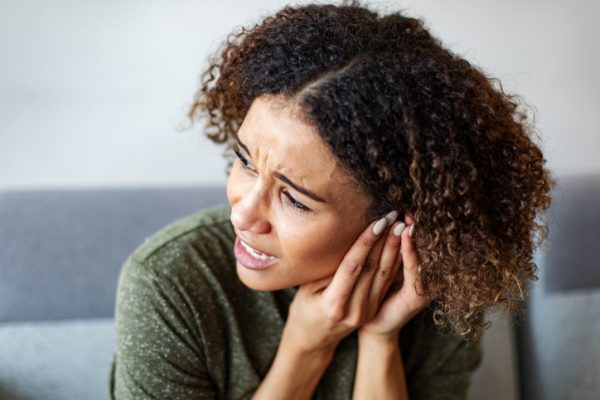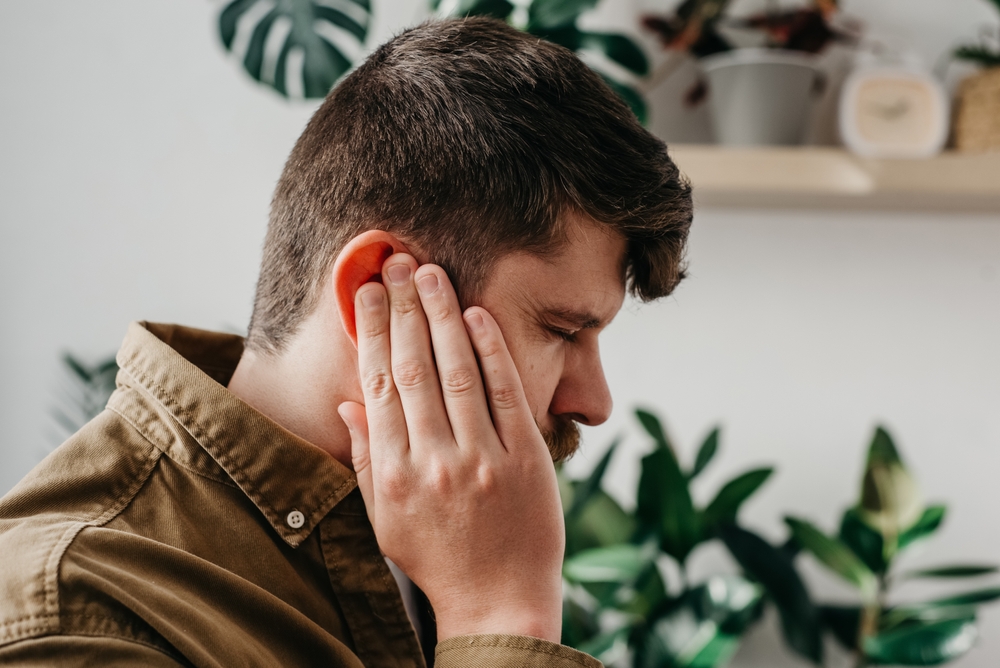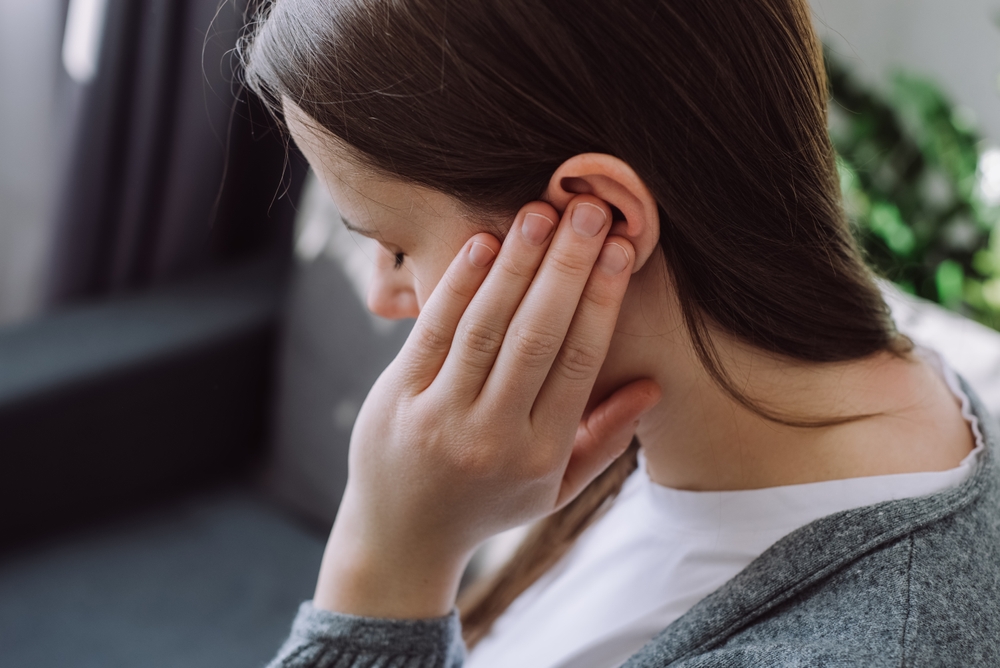You’re making breakfast when you hear a high-pitched whine over the sizzling of your eggs. It’s not entirely unfamiliar, so you aren’t alarmed. But that whine doesn’t go away, and it doesn’t seem to be emanating from anything or any particular direction. What you’re experiencing is called tinnitus. What causes tinnitus?
It’s a kind of phantom sound, in that the source of the sound is not the outside world but the inner workings of your ear. Tinnitus is incredibly common. Almost everyone experiences these episodes multiple times throughout their lives. For some individuals, however, this condition can become both chronic and serious.
And that begs the question: what causes tinnitus?
Tinnitus is like getting error messages
Your ear is filled with hair. (Put the mirror down, we don’t mean visible hair.) Rather, there are tiny hair cells inside your ear that enable you to hear. These hair cells vibrate when struck by moving air molecules – the technical term for this moving air is sound waves. Your brain translates these vibrations into what we perceive as hearing. Those tiny hair cells in the inner ear, called stereocilia, sometimes become damaged.
When damage occurs, the hair cells begin sending erroneous information. Your brain interprets those error messages as actual sounds. For most people, it’s a high-pitched tone. For others, it might be a thumping, whirring, or buzzing. (There is, in fact, a long list of possibilities.)
For most people, tinnitus is relatively fleeting. It might last for several seconds or minutes and then fade away. For others, these error messages can become stuck in a kind of feedback loop, causing long-term tinnitus symptoms. Unfortunately, once your stereocilia are damaged, there’s no way for doctors (or your body, for that matter) to repair them.
The cause of the cause
That’s why it’s important to prevent irreparable damage from occurring. To do that, you have to understand the cause of the cause. Essentially, you have to know what damaged those stereocilia cells in the first place. Once you know that, you can take steps to prevent further damage from occurring. Some of the most common causes of damaged stereocilia include:
- Noise damage: Excess volumes can cause significant damage to your hearing, and your stereocilia are no exception. When you go to a loud concert, for example, your ears might be ringing when you leave (that’s tinnitus caused by damage from loud volumes). The best way to prevent this type of damage is to limit your repeated exposure to overly loud noises.
- Traumatic Brain Injury: Anything that injures your brain can also injure your ears. That’s why it’s not uncommon for those with a traumatic brain injury (TBI) also to experience tinnitus symptoms. If you’ve experienced a TBI, you should definitely talk to your specialist if you begin having any tinnitus-like symptoms.
- Earwax: It might sound innocuous, but when earwax builds up in the ear, inflammation can result. That swelling can put pressure on your stereocilia and create conditions ripe for tinnitus symptoms. Fortunately, these symptoms usually diminish when the earwax is removed. (This is not an invitation to use a cotton swab to clean your ears. When earwax gets to this stage, it’s best to let a specialist remove it.)
- Ear infections: Inflammation from ear infections can also cause tinnitus symptoms. When the infection goes away, the swelling diminishes, and the ringing or buzzing tends to disappear. You may need to seek medical treatment for your ear infection to clear it up (a specialist will be able to determine the best course of action).
The ears tend to be more sensitive to damage, so it’s worth noting that tinnitus can have other causes, as well. In fact, your hearing specialist may not be able to find any observable cause for your tinnitus. You shouldn’t worry too much if this happens – tinnitus with unobservable causes is not uncommon.
Protect your ears
Knowing the most common causes of tinnitus can help ensure chronic tinnitus remains a fleeting phantom rather than a constant companion. The most important step you can take is to properly protect your hearing. Stay away from loud events, or wear hearing protection (such as earmuffs or earplugs), if loud situations are unavoidable.
You should also regularly visit a hearing specialist. This individual will provide personalized care instructions for your ears. Should chronic tinnitus begin to become a problem, you’ll be able to talk to your hearing specialist about potential treatments early in the process.
While all tinnitus might be similar physiologically, the causes vary (when they are known at all). Scientists are continuing to research tinnitus and its causes to develop more effective treatments in the future.



